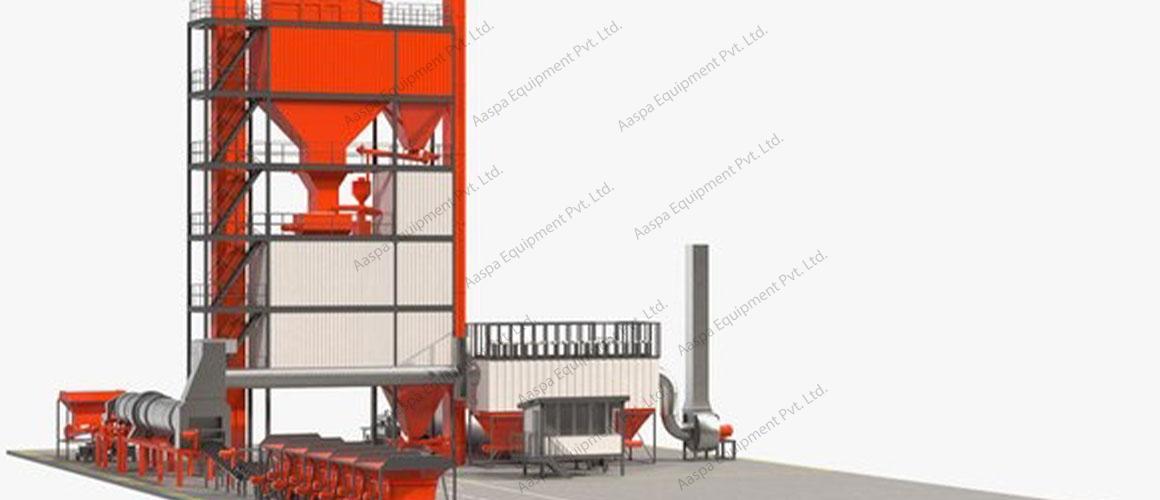What Makes Asphalt Plants Suitable for Road Construction inExtremely Cold Climates?

Harsh winters bring unique challenges to road construction, making it difficult to maintain asphalt quality and ensure smooth project execution. Freezing temperatures accelerate heat loss, affecting compaction and adhesion. Ice and snow introduce excess moisture, leading to poor material bonding and reduced pavement durability.
Standard asphalt plants often struggle in such conditions, as traditional heating and drying methods may not be sufficient. Specialized plants designed for extreme cold incorporate advanced thermal control, moisture management, and flow optimization to keep operations running smoothly.
This article will explore the essential features that make asphalt plants effective in cold-weather road construction and the key benefits they offer for long-term road performance.
Key technical features of asphalt plants for extreme cold climates
Cold-weather asphalt plants are engineered with advanced heating, storage, and material handling solutions to ensure consistent mix quality and smooth production.
1. High-efficiency thermal management systems
Temperature stability is a top priority when working in freezing conditions. Asphalt plants designed for extreme cold feature:
- High-performance burners capable of running on multiple fuel types, ensuring efficient heating regardless of outdoor temperatures.
- Insulated storage silos with multi-layer protection and heating elements to maintain optimal mix temperature.
- Extended drying drums with reinforced insulation to minimize heat loss and ensure uniform aggregate heating.
- Infrared thermal monitoring to detect and correct temperature variations during production.
2. Advanced moisture control systems
Moisture from snow and ice can interfere with aggregate drying and reduce asphalt binder effectiveness. Cold-weather plants counteract this with:
- High-efficiency drying drums equipped with variable-speed airflow systems for precise moisture removal.
- Enclosed conveyor systems that prevent moisture absorption during material transfer.
- Pre-heated aggregate storage bins to minimize thermal shock and improve drying efficiency.
3. Cold-resistant bitumen storage and pumping systems
Bitumen viscosity increases in cold weather, leading to pumping difficulties and inconsistent mix quality. To prevent these issues, asphalt plants include:
- Heated bitumen tanks with internal coil heating or electric trace heating for stable temperature control.
- Circulating pump systems that keep bitumen flowing evenly to prevent localized cooling.
- Insulated and heat-traced pipelines that maintain temperature during transfer to the mixing unit.
4. Low-temperature asphalt mix production capabilities
Producing asphalt at lower temperatures improves mix workability and reduces energy consumption. Many cold-weather plants incorporate:
- Foamed bitumen technology to enhance aggregate coating and workability.
- WMA (Warm Mix Asphalt) additives that reduce production temperature without compromising strength.
- Heated transport containers to minimize heat loss during asphalt delivery to paving sites.
5. Freeze-resistant material flow systems
Material freezing and clogging can disrupt operations. Specialized asphalt plants prevent these issues with:
- Heated hoppers and chutes eliminate mix buildup and cold-related blockages.
- Anti-freeze linings and vibration-assisted discharge systems for smooth material flow.
- Automated flow monitoring to detect and resolve issues before they affect production.
Benefits of specialized asphalt plants in extreme cold
Extreme cold conditions can lead to rapid heat loss, moisture-related material failures, and inconsistent asphalt quality if the right equipment is not used. Asphalt plants designed for such environments address these challenges with advanced heating, moisture control, and storage solutions. These plants not only ensure smooth production but also help contractors maintain efficiency, reduce downtime, and deliver high-performance roads that withstand freezing temperatures. With the right technology in place, projects can continue even in harsh winter conditions, avoiding costly delays and material waste.
- Reliable asphalt quality – Effective temperature control prevents segregation, ensuring uniform mixing and proper compaction.
- Extended paving season – Heated storage and advanced mix technologies allow projects to continue in colder months.
- Lower operational costs – Optimized fuel usage and reduced material waste enhance cost efficiency.
- Higher production rates – Automated monitoring and freeze-resistant components minimize delays and maximize output.
- Better moisture resistance – Enclosed conveyors and high-efficiency dryers prevent moisture-related asphalt defects.
- Improved transportation efficiency – Heated transport systems maintain mixed temperatures for longer periods.
- Consistent material flow – Anti-freeze linings and heating systems ensure smooth operation without clogging.
- Increased road durability – High-quality asphalt production leads to stronger, longer-lasting roads.
Final thoughts
Cold-weather Road construction demands more than just standard asphalt production. Investing in an asphalt plant designed for freezing conditions ensures continuous operations, reliable material quality, and reduced project delays.
Choosing the right equipment makes a significant difference in long-term road performance. For expert solutions tailored to extreme climates, reach out to info@aaspaequipment.com and explore how advanced asphalt technology can improve your next project.
